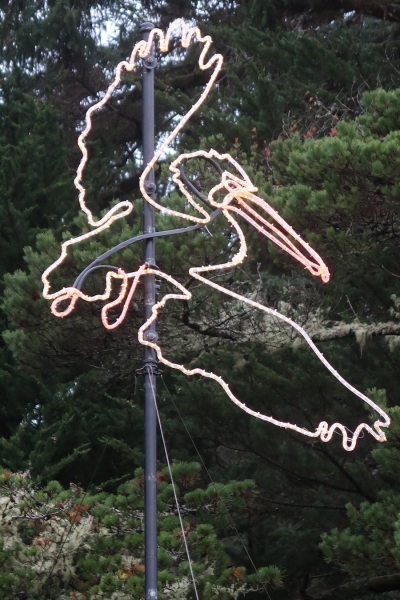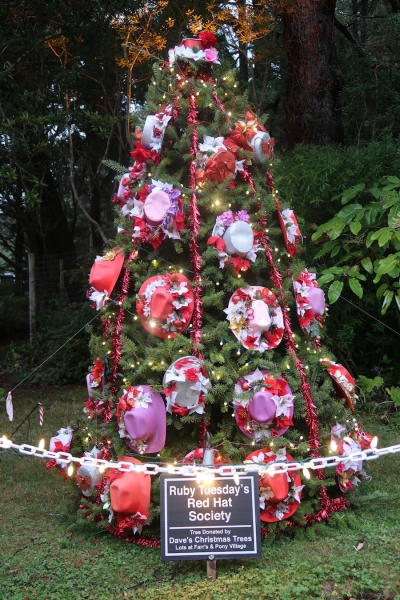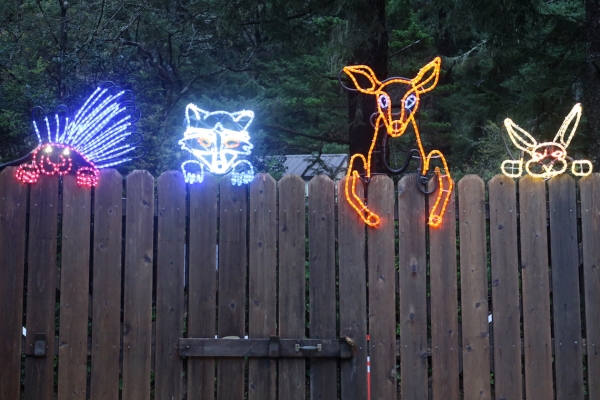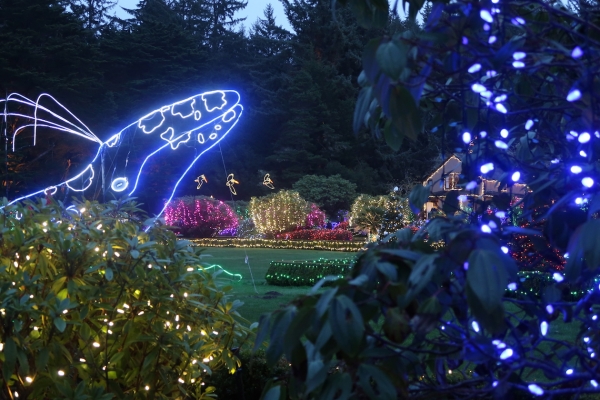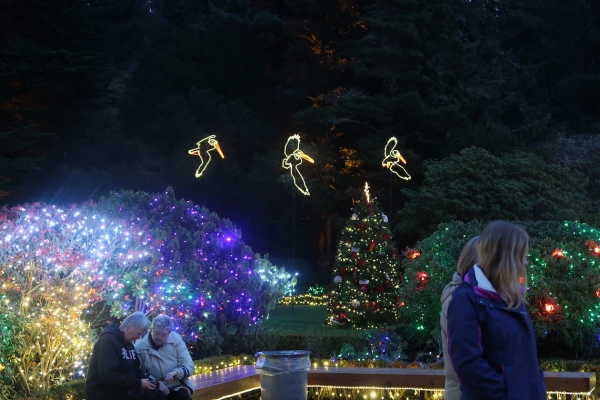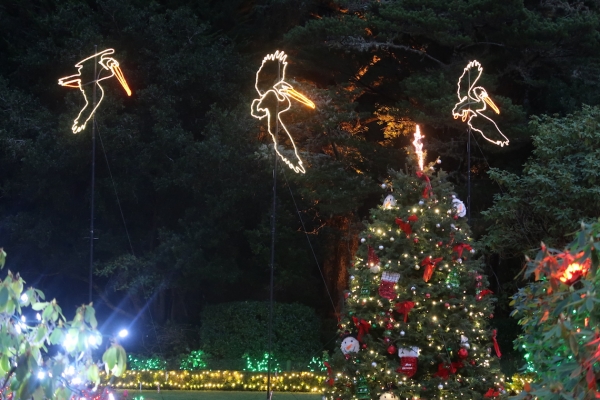Greetings and welcome to the last issue of Pianotes for 2018! The December issue is always the most fun to put together with the Holiday Wishes List and holiday trivia about carols and other traditions, and I hope you will enjoy reading it! Oh, and yes, that's me above at about the age of 3! It was the family Christmas card for that year. No, I won't tell you what year it was!
Christmas carols were banned from church services in the 1400's as being disrespectful. The Puritans forced Christmas music underground, and it didn't become commonly used again until the 1800's.
The words and music of many Christmas carols originated in folk traditions from around the world. Singing carols is believed to have been popularized by a tradition that called for people to dance and sing around a manger scene. This tradition was known as a "creche." Today we refer to a creche as the manger scene only.
“O Come, O Come, Emmanuel” was originally a plain song that monks used as a prayer in monasteries, and although the melody sounds very sad, it was then considered very joyful.
New Reviews: We have a sleigh-full of new reviews for you this month! There are 25 new album reviews and several new songbooks! It’s been a BUSY month and I expect there will be almost as many new reviews in December. There are eight new holiday albums this year, and they are all exceptional! I also have a review of David Lanz’s new French Impressions songbook. Check ‘em out!
I’d like to mention that three of the reviews are for the three SoloPianoChristmas.com nominations for Christmas Album of the Year - Janine De Lorenzo’s A Classical Christmas Courtship, Ryan Marvel’s Christmas II and Christine Brown’s A Classic Christmas II. They all deserve to win!
The original Santa Claus, St. Nicholas, was born in the early 4th century, in Turkey. On a boat journey to Palestine, he is supposed to have extended his arms and stilled a violent sea. Later, he became the patron saint of sailors. He also became the patron saint of Russia, Greece, and Sicily. His generosity and fondness for children were two of the reasons that he became Santa Claus.
“O Christmas Tree” is known as "O Tannenbaum" in Germany. It celebrates the beauty of the evergreen, which has been a symbol of worship by many cultures for centuries. Modern use of a Christmas tree comes from medieval times when a popular play about Adam and Eve used a fir tree hung with apples to represent the "paradise" tree. It later became a German custom to have a fir tree in the home at Christmas to symbolize the belief that Christ's birth occurred for the purpose of wiping out the original sin. German immigrants to America brought the custom with them, and the Christmas tree in the New World is first mentioned in a diary entry made in 1821.
“Good King Wenceslas” was a real person. He ruled Bohemia from 928-935 AD and was loved by his subjects for his goodness and kindness.
Interviews: I’m afraid interviews have had to take a break while I try to stay caught up with reviews and sheet music proofing. I hope to get them going again later this month or in January.
Within a week of its 1952 release, the Archdiocese of Boston condemned “I Saw Mommy Kissing Santa Claus” as immoral. Other groups from both Catholic and Protestant churches followed suit. Missing the point that the man in the lyrics was actually a husband dressed up like Santa, people wrote articles and gave speeches deriding the song for casting Santa Claus as a man who fooled around. Hundreds argued that the song was sending a horrible message to America’s innocent children. The record label flew the singer, 8-year-old Jimmy Boyd, to meet with the head of the Catholic Church in Boston. The boy explained the song to the church leaders, who took a second look at the song and removed its objections to it. In the process, millions of peopled tuned in to hear what all the fuss was about! The song quickly jumped to #1 on the charts and stayed there for two weeks. Three million copies were sold the first year.
The custom of embracing under the mistletoe goes back to 200 BC in Britain. The Druids celebrated the start of winter by gathering mistletoe and burning it as a sacrifice to their gods. Sprigs were also hung in their homes to ensure a year's good fortune and happiness in the family. Guests to a house embraced under the mistletoe. If enemies happened to meet under a tree that bore mistletoe, they were required to lay down their arms and forget their differences for a day.
“The First Noel” is one of the oldest Christmas carols, and its origins are not known. It is either English or French, and was a favorite of the shepherds centuries ago. Legend has it that when the shepherds sang it at Christmas, angels would join in one after another, singing it in its "round" form.
Holiday Wishes List: I just realized that I’ve been doing the Annual Holiday Wishes List for 36 years! Many of the wishes this year are especially poignant and heartfelt. I truly hope they all come true! Here is the link:
Holiday Wishes List If anyone still wants to send me their wishes, I will be glad to add them to the list. You can email them to kathypiano@gmail.com.
“Deck the Halls with Boughs of Holly” is of Welsh origin, but no one has been able to put a definite age to it. It was well known enough by the 1700's to appear in one of Mozart's compositions.
In Europe, the early Santa Claus had a long white beard and wore red and white bishop's robes. He was not pulled by reindeer, but by a stubborn donkey. He arrived on his Christian feast day, December 6. The gifts he left were usually nuts and berries, and small clay or wooden figurines.
Some interesting Christmas superstitions:
—It’s bad luck to let your evergreen decorations fall or to throw them away. You should burn them or feed them to your cow.
—If you eat a raw egg before anything else on Christmas morning, you will be able to carry heavy weights.
—If you refuse mincemeat pie at Christmas dinner, you will have bad luck for a year (that must be my problem! I hate the stuff!).
—Eating an apple at midnight on Christmas Eve will bring good health for a year.
—You burn your old shoes during the Christmas season in Greece to prevent misfortunes in the coming year.
A Shameless Plug: Five years ago, David Hicken took the world by storm with his incredible solo piano arrangement of “Carol of the Bells” (aka “The Bell Carol”). The accompanying video of the song, while beautiful to watch, left a lot of people scratching their heads. Well, David just redid the video with just him playing the piece, and it’s wonderful! Some of the original video of him playing is there, and some is new.
Here’s the link to fall in love with Hicken’s arrangement all over again!
Phillips Brooks, who wrote the words to “O Little Town of Bethlehem,” became Bishop of Massachusetts shortly before his death in 1893. When he was 30, he took a trip to the Holy Land, riding from Jerusalem to Bethlehem shortly before Christmas. That trip is supposed to have been the inspiration for the lyrics to the carol.
In 1659, the General Court of Massachusetts enacted a law that made it illegal to celebrate Christmas is any way other than by going to church. People were fined for hanging decorations.
“O Holy Night” has been very controversial in its history. The words were first written as a poem called “Cantique de Noel” in 1847 by Placide Cappeau de Roquemaure. For the music, Cappeau turned to his friend, Adolphe Adam (a Jewish man), for help. The song was initially accepted by the church and became increasingly popular, but when Cappeau left the church to become part of the socialist movement, and it was discovered that Adam was Jewish, the song was banned and formally denounced by the church for its lack of taste and “the total absence of the spirit of religion.”
December Birthdays: Here is a sampling of some musical birthdays coming up this month:
12/2 Tom Nichols & Michael Whalen
12/11 Samer Fanek
12/16 Eric Tingstad & Richard Dillon
12/17: Andy Iorio
12/19 Gary Schmidt
12/22 Kevin Kern
12/26 Vin Downes
Happy Birthday to all of you!!!
The first Christmas postage stamp was issued in Austria in 1937.
“Jingle Bells” was originally titled “One Horse Open Sleigh” and was written in 1850 by James Pierpont, the son of a pastor in Massachusetts. It was first performed by a children’s choir in his church’s annual Thanksgiving service in front of a packed house. There were so many requests for another performance of the song that it was performed during the services on Christmas weekend and became one of the most popular Christmas songs ever.
“We Three Kings” is a comparatively new carol, and dates back to the middle 1800's. Its composer, John Henry Hopkins, Jr., was the son of the second bishop of Vermont. He was a poet, a musicologist, a composer, and the rector of various parishes. In his spare time, he designed stained glass windows.
The tradition of bringing holly into the home comes from Northern Europe. It symbolizes rebirth and life.
I think that's the news for this month! I will add a few more Christmas trivia bits after this closing as well as some photos I took at the Annual Holiday Lights display in Shore Acres Park last weekend (near Coos Bay). Wishing everyone a wonderful holiday season no matter how you celebrate it! We'll see you next time for the first issue of 2019!
Kathy
The words to “Angels From The Realms of Glory” were written by James Montgomery, who published the poem in his own newspaper in Sheffield, England in 1816. Montgomery was jailed several times for championing causes that were unpopular with local authorities. Each time he went to jail, he found that he was more popular and famous. He was also a devout Christian, and wrote the words to nearly 400 hymns.
“I'll Be Home for Christmas” was first released in 1943, when millions of servicemen were scattered around the world wishing they could be home for Christmas. Bing Crosby recorded it first.
The story of Mistletoe in the Christmas tradition is from Norse mythology. Balder was the best-loved of all the gods, and one night he had a dream of impending danger. When he told his mother, Frigga, about the dream, she promised to protect him. Frigga went throughout the world asking and receiving a promise from everything, even the rocks and trees, that they would not harm Balder. When this was known, it became a sport to throw deadly objects at Balder since they would always fall short or turn aside because of their promise. Everyone was happy about Balder’s safety except Loki, who was jealous. Loki found out from Frigga that there was one very insignificant plant the she had overlooked when getting the promises - the mistletoe. Taking a sharp sprig of mistletoe, Loki went to Holder, Balder’s blind brother, and asked why he didn’t join in the game of throwing objects harmlessly at Balder. Holder said that he was blind and had nothing to throw. Loki gave him the mistletoe and guided his hand. The dart went straight to Balder’s heart, and he fell dead. Frigga blessed the plant, making it a symbol of love, and promised to bestow a kiss on all who passed beneath it.
The words to “Coventry Carol” go back to 1534, and the melody is at least fifty-seven years older. It was first used in a Christmas pageant in England that included a scene in which the mothers of Jewish children sang this lullaby after hearing the horrifying order of King Herod to kill all of the baby boys.
It is considered bad luck to hang your new calendar before sunrise on New Year's Day. Aren't you glad I warned you??
[Image:7:c]





